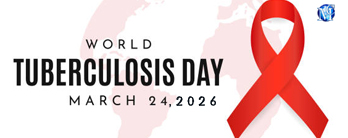Journal of
eISSN: 2376-0060


Editorial Volume 5 Issue 2
110th Zonal Tuberculosis and Chest Disease Center, Thailand
2Department of Disease Control, Ministry of Public Health, Thailand
3Department of Pathology, Chiang Mai University, Thailand
Correspondence: Attapon Cheepsattayakorn, 10th Zonal Tuberculosis and Chest Disease Center, 143 Sridornchai Road Changklan Muang Chiang Mai 50100 Thailand, Tel 66 53 140767, Fax 66 53 140773
Received: March 24, 2018 | Published: March 30, 2018
Citation: Cheepsattayakorn A, Cheepsattayakorn R. Promising shorter and more effective treatment regimens for drug-resistant tuberculosis: recent research found. J Lung Pulm Respir Res. 2018;5(2):65. DOI: 10.15406/jlprr.2018.05.00163
tuberculosis, drug-resistant, bedaquiline, clofazimine
In September 2016, the United Nations General Assembly issued a declaration committing to take global action against drug-resistant tuberculosis (TB). This declaration recognized that resistance to antimicrobials is “the greatest and most urgent global risk, requiring increased attention and coherence at the international, national, and regional levels”. An issue of management of a healthcare system to solve the challenge of drug-resistant TB is one of the important issues in addition to a medical management. For solving the challenge of drug-resistant TB, promoting expertise across a range of disciplines, including healthcare systems management are needed. A study conducted in South Africa by using bedaquiline, a medicine that was approved in 2012 revealed that using bedaquiline allowed the patients with extensively drug-resistant TB (XDR-TB) to receive a treatment regimen that included only oral medications without drug injections. A study conducted in the Russian Federation by using bedaquiline, clofazimine and linezolid for treating patients with drug-resistant TB (resistant to at least the first-line drugs, isoniazid and rifampicin, plus the second-line drug, fluoroquinolone and/or injectable drugs. Approximately, 69% of the patients treated by using bedaquiline, clofazimine and linezolid had sputum culture conversion after 6 months, a highly reliable treatment success measurement, versus only 39% in the control population. A study conducted in Swaziland by using shorter regimen (9 months), recommended by the World Health Organization (WHO) revealed that 75% of patients with multidrug-resistant TB (MDR-TB) were successfully treated, versus 55% of treatment success rates using the previous standard treatment regimen. A study conducted in the United States Centers for Disease Control and Prevention among 1,761 patients with MDR-TB demonstrated that about 9% (78 patients) developed further resistance to at least one “second-line” drug that exclusively reserved for treating drug-resistant patients. These patients developed additional resistance in a median length of 91 days in following-up each patient over the course of two years. A study conducted in South Africa among 682 patients with rifampicin resistance (RR-TB) between 2012 and 2014 revealed that 28% of patients were missed opportunities for RR-TB earlier diagnosis. About 66% (448 patients) of 681 RR-TB patients were diagnosed sooner by using Xpert MTB/RIF testing. The remaining cases (133 patients) were diagnosed RR-TB by using a line probe assay (LPA) test. These results indicated a high proportion of patients missed opportunities for rapid diagnosis of RR-TB in the setting of eligibly universal Xpert MTB/RIF coverage.
None.
Authors declare there is no conflict of interest in publishing the article.

©2018 Cheepsattayakorn, et al. This is an open access article distributed under the terms of the, which permits unrestricted use, distribution, and build upon your work non-commercially.
 World Tuberculosis Day (March 24) provides the opportunity to raise awareness about TB-related
problems and solutions and to support worldwide TB-control efforts. While great strides have been made to control and cure TB, people
still get sick and die from this disease in our country. On this event, we request researchers to spread more information and awareness
on this by their article submissions towards our JLPRR. For this we are rendering 25% partial waiver for articles submitted on or before
March 24th.
World Tuberculosis Day (March 24) provides the opportunity to raise awareness about TB-related
problems and solutions and to support worldwide TB-control efforts. While great strides have been made to control and cure TB, people
still get sick and die from this disease in our country. On this event, we request researchers to spread more information and awareness
on this by their article submissions towards our JLPRR. For this we are rendering 25% partial waiver for articles submitted on or before
March 24th.